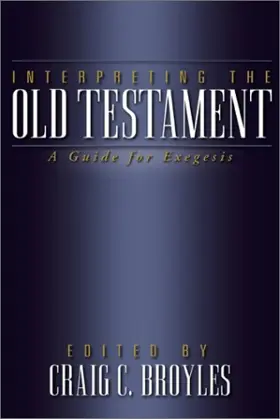

Interpreting the Old Testament: A Guide for Exegesis
Pages
272
Publisher
Baker Academic
Published
2001
ISBN-13
9780801022715
Every serious student of the Old Testament quickly realizes the inherent difficulty of the interpretive task. The literature of the Old Testament poses unique challenges and requires methodologies different from those used to interpret the New Testament. This textbook has been designed to provide students with a useful methodology for interpreting Old Testament texts. Not simply a book of theory, this work provides practical help to students as they seek to understand and apply the Old Testament.
The authors, all leading evangelical scholars, were chosen because of their particular expertise in the various aspects of the interpretive process.
Reviews
Evangelical scholars discuss methods of Old Testament exegesis and criticism for interpreting the text.
[Full Review]
This volume is appropriately subtitled “a guide for exegesis.” For most who alreadyembrace critical scholarship, or who wish to teach the nuts and bolts of methodology,more complete introductions are certainly available. But as the preface states, the volumeunder review is not “a book preoccupied with methodology” but rather “offersobservations on the Bible, points us to resources to enhance study, and raises questionsthat help unlock the Bible’s richness and depth” (8). In short, the book offers itself as aguide to those confronted with the difficulty of interpreting the Old Testament but unsureof how to negotiate the process and how safely to handle the sharp tools of scholarlyexegesis.Written from an openly evangelical perspective, the various authors’ works serve tobreak down many of the barriers that often exist between conservative Christians andcritical scholarship of the biblical text. The lead essay, by Craig C. Broyles, affirms thatthe Bible is “inspired” and that biblical exegesis “should be an adventure filled withanticipation and holy fear, because in exegesis we hear the voice of the living God” (13).But Broyles continues (and various chapters in the book emphasize) that the Bible “is nota book ‘dropped from heaven’ ” but is the result of human agency.
[Full Review]

